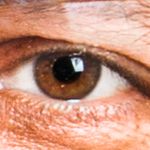- Home
- Stock Contributors
- Discussions
- Re: Addressing Quality Issues and Improving Accept...
- Re: Addressing Quality Issues and Improving Accept...
Copy link to clipboard
Copied
"Hello, I need your help with quality issues. Recently, two out of every three of my images have been rejected."
I will soon submit all my pending images for approval, but I don't want to take up too much of the moderators' time. If my image isn't suitable, it should be rejected. I don't upload images randomly. For example, I create a collection, select the best thousand out of five thousand images, and submit them for approval (at one point, the waiting period was over four months, so I didn't want to send my work during that congestion and waited). I would like to share with you my most recently rejected images. I enjoy creating surreal or illusion-style visuals.
When I review topics in the forum, issues like object errors or incorrect exposure seem to stand out, but I wonder how this applies to illustrations. Is the same photographic logic used here? There's a big difference between photographs and illustrations
(if we judge illustrations like photographs, none would pass because they are very different).
Can you tell me the critical points for evaluating illustrations?
If I submit a thousand images for approval and only a hundred are accepted, am I spamming? The number of my rejected images keeps increasing despite improving quality, and I don't offer too many alternatives – at most two or five, just to maintain the value of the collection."
 1 Correct answer
1 Correct answer
Salvador Dali probably wouldn't have his images accepted to Adobe Stock.
Copy link to clipboard
Copied
You are not paying attention to details. In the first image the glass globe is not drawn correctly. The roofs of buildings are wrong. And a lot of other things. Make sure that everything is rendered correctly. Produce less and submit only quality. You need to check your work.
Copy link to clipboard
Copied
Do you know the difference between photography and illustration? You comment like you would comment on photos. If we think like you, Salvador Dalí should be walking around the streets hungry.
Copy link to clipboard
Copied
You don't have to accept our critiques. That's up to you. The moderators are the ones with the final say.
daniellei4510 | Community Forum Volunteer
---------------------------------------------------------
I am my cat's emotional support animal.
Copy link to clipboard
Copied
I am always open to criticism. I opened this title to increase efficiency.
The moderators are doing a kind of art evaluation. The thing you are stuck on is that you want architectural drawing visuals on surreal or abstract subjects. I can reproduce the anatomy in the correct image. This is not defending, now you made an image of a monkey with an elephant head, it was rejected because it did not look like reality, what did I understand from surreal art?
Copy link to clipboard
Copied
Salvador Dali probably wouldn't have his images accepted to Adobe Stock.
daniellei4510 | Community Forum Volunteer
---------------------------------------------------------
I am my cat's emotional support animal.
Copy link to clipboard
Copied
Hi Slavador,
Just looking at your first asset, I saw some artefacts, nothing that prominent, but it may be enough to get the asset rejected.
Moreover, the cutouts are not that well done. And there is inconsistency in the texture.
As art, it may pass well. But for stock, you probably need to think cleaner. Salvador Dalí, Pablo Picasso and many others may effectively walk hungry, if they had submitted their assets to Adobe stock.
Copy link to clipboard
Copied
I will pay more attention
I need to do this to remove the artifact in the picture, right?
Is it appropriate for the image I edited as attached?
Or how do you go about fixing it?
Copy link to clipboard
Copied
Salvador Dalí didn't sell stock images.
Adobe reviewers are not evaluating art, they are evaluating commercial viability of images that are being sold for editorial and illustrative use, the vast majority in commercial/advertising settings.
This is not a marketplace for fine art unless it has some kind of commercial use.
Copy link to clipboard
Copied
@RALPH_L is correct. The woman and the fish, for example. The reflection of the woman in the water is not correct, such as the lost of detail in the eye. Some fish are rendered with one eye with fins in places they wouldn't ordinarily be. Look at the "fish" on her cheek. It bears no resemblance to a fish. The strings of the boat on the kayak are poorly defined. Even surrealism needs to bear some resemblance to reality, I think. At least in the eyes of Adobe moderators.
daniellei4510 | Community Forum Volunteer
---------------------------------------------------------
I am my cat's emotional support animal.
Copy link to clipboard
Copied
Copy link to clipboard
Copied
It's Christmas, and I'm on assignment. You will need for most of the parts, be happy with what @daniellei4510 and @RALPH_L will suggest. Assets like this may or may not pass. Half a year ago, the moderators would have added the assets more or less blindly, but they have become picky these days. You need to cope with that.
Copy link to clipboard
Copied
Thank you very much
Copy link to clipboard
Copied
Even Salvador Dalí would get refusals here. You should embed the colour profile with your assets.
Copy link to clipboard
Copied
I'm using the old version of Photoshop, it's something I neglect a lot.
They discussed this issue on this page, but I don't understand it very much.
embed colour profile
It makes it look the same on all devices, but I don't think it has any effect on export for web.
Copy link to clipboard
Copied
Even old Photosop worked with colour profiles. What is your Photosop version?
Copy link to clipboard
Copied
Even for illustrations, the details need to be correctly drawn.
In the first image, the earrings don't match and the left earlobe is mangled.
In the second image, the birds in the sky don't really look like birds. The bird on the left side is 2-headed?
Copy link to clipboard
Copied
Most people think the same thing at first glance, that anatomy is not accepted because of proportion.
I think differently. Adobe may have established a new design approval system. There is no way, let them approve it one by one without using artificial intelligence.. Do you know how long it takes to approve 30 million images with a thousand employees?
To calculate the time it would take for 30 million images to be reviewed and approved by 1,000 employees, we need to make some assumptions. First, we have to estimate how many images each employee can review per day. This estimate can vary depending on the complexity of the images, the level of detail, and the requirements of the review process.
Let's assume each employee can review an average of 100 images per day. In this case, 1,000 employees can review a total of 1,000 x 100 = 100,000 images per day. To calculate the total number of days needed to review 30 million images:
30,000,000 images / 100,000 images per day = 300 days
Therefore, if 1,000 employees review 100 images each per day, it would take approximately 300 days to review and approve 30 million images. However, this calculation is a simplified model and in reality, many different factors (such as employee efficiency, holidays, complexity of images, etc.) could affect the duration.
Since Adobe had this problem last year, I think it has established a new approval system and this system may be working with very strict rules.
The system progresses slowly because too many images create space problems.
That is, artificial intelligence automatically checks things such as color, light, clarity, etc., and only the human gives the final approval (I assume that the tolerance may have decreased because the contents controlled by humans have decreased.)
Otherwise, it is not normal for everyone's complaints to suddenly increase so much.
Copy link to clipboard
Copied
Moderators have become better trained and more experienced, therefore more adept at spotting errors in AI assets. Adobe also spent significant effort over the past year in finding and deleting previously accepted flawed AI images, and they don't want to continue to add bad images to the database.
I seriously doubt that "too many images create space problems" is a reason for rejection. If that were the case, Adobe would also launch a project to delete older, unsold assets in the database. Storage is cheap, and I'm quite that is NOT the reason for higher rejections.
Copy link to clipboard
Copied
Your math is way out there. First, a moderator only reviewing 100 images per day probably wouldn't hold their job for very long. Second, there is no artificial intelligence involved, if that's what you are suggesting.
daniellei4510 | Community Forum Volunteer
---------------------------------------------------------
I am my cat's emotional support animal.
Copy link to clipboard
Copied
I agree. The Moderator throughput is probably more like 100 images an hour.... I can usually spot errors within a few seconds of viewing an image on a large screen and scrolling around within that image. Assuming it takes a few more seconds to scroll down the reject reason list, 15 seconds per image is probably their target rate.
Copy link to clipboard
Copied
Let's assume each employee can review an average of 100 images per day. In this case, 1,000 employees can review a total of 1,000 x 100 = 100,000 images per day. To calculate the total number of days needed to review 30 million images:
By @Ferryporsche
- Moderators refuse at the first error seen.
- The refuse with a generic reason.
For. refused asset, a moderator need a grand maximum of 10 seconds. That makes 6 assets per minute. That makes 360 assets per hour. That would get easy 2000 assets per day.
I look at your assets, the clouds, in your first asset, and I refuse for technical issuses. What takes my time here is not seeing the issue, but describing it, suggesting corrections etc.
Copy link to clipboard
Copied
I don't think it's a two earring situation.
Copy link to clipboard
Copied
Additionally, submitting 1,000 images at a time is not recommended. It seems that Smaller batches submitted at daily intervals will improve throughput and acceptance rate.
Copy link to clipboard
Copied
In my personal opinion – as someone who has had several thousand AI images accepted and sold – your work is being refused because it is completely derivative and has very little commercial utility. It just looks like default Midjourney v3 output without much finesse, detail, or postprocessing. Yes, many of them are pretty pictures, but that's about it.
-
- 1
- 2















